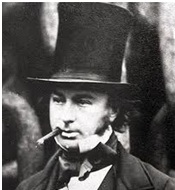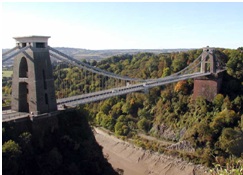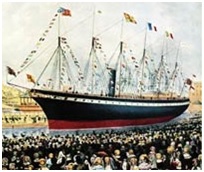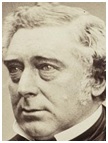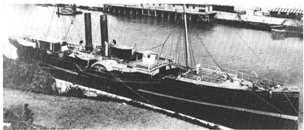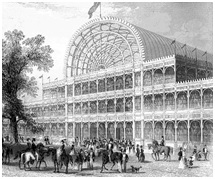|
 |
|
 |
|
|
||
Isambard Kingdom Brunel - Creativity and Engineering
Isambard Kingdom Brunel (1806-1859)
English engineer (pictured right), and builder of
Voted the second greatest Briton behind Winston Churchill in a 2001 BBC poll.
Why was he so creative?
1. Vision He wanted to create a new and exciting world, using new technology to build something beautiful as well as functional. Money didn’t interest him so much. Getting the job done well and quickly was always his top priority.
2. Customer focus He built things for the people who used them, satisfying three important customer needs:
All three were evident in Brunel's great passenger liner, the Great Britain, - then the world's largest ship. His hotels and some of his carriages were luxurious for rich customers. He attended to the smallest detail including the colour of the carriages.
3. Determined risk taker Brunel:
4. Continuous improvement He was always willing to: a) use new engineering methods For example, he improved his ships by strengthening along the line of the hull as well as across it (then the usual practice). His liner, the Great Britain (pictured right at its launch in 1843), was revolutionary - the first ship with an iron hull and propellor propulsion.
b) challenge existing knowledge c) freely exchange ideas with other engineers (like his friend, Robert Stephenson , the inventor of the locomotive, pictured right). So Brunel never took out a patent.
5. Lifelong learning Brunel learned from: a) his father (Marc Brunel, a brilliant French engineer, pictured right).
b) his mistakes (particularly his disastrous, South Devon railway, powered by air pressure). He learned that technical brilliance isn’t everything, when he had to abandon his broad gauge railway track in favour of the more widely used narrow gauge. c) other people’s mistakes He improved the Clifton Suspension Bridge’s suspension chain after closely examining Thomas Telford’s (pictured right) Menai Bridge in Wales that had been damaged by gales.
d) using mathematics He discovered that it isn’t the ship’s weight that’s important (as people then believed), but the weight of water it has to push against, making the surface area of its hull vital.
5. Ambition and hard work Brunel:
“My profession is after all, my only fit wife”, he once wrote. 6. Seizes opportunities He was lucky to be born during the Industrial Revolution, when new railways and bridges were needed. But he was always quick to take full advantage of his opportunities. In 1835, when he was questioned by his Great Western Railway bosses about the cost and length of the proposed
London to Bristol line, he proposed to extend it to New York by building the Great
Western liner (pictured right above)! Brunel also:
7. Technical skill Brunel was tremendously talented and versatile: architect, surveyor, civil engineer, mechanical engineer and ship designer.
8. Teamwork and toughness Brunel:
a) always wanted to do the best work possible So he:
b) earned the respect of his employees They respected him because he:
9. Sense of responsibility Brunel always:
10. Bureaucracy Brunel (pictured right at the launch of the Great Eastern liner in 1857) hated bureaucracy and rules and regulations, particularly if they hindered:
Key quote on creativity I...stick obstinately to one plan until I believe it wrong.
Key quote on management and bureaucracy I am opposed to the laying down of rules or conditions to be observed...lest the progress of improvement tomorrow might be embarrassed or shackled by recording or registering as law the prejudices or errors of today. |
|
|
||
|
|
||
| Copyright © wisdomtowin.com 2025 All Rights Reserved | ||
|


